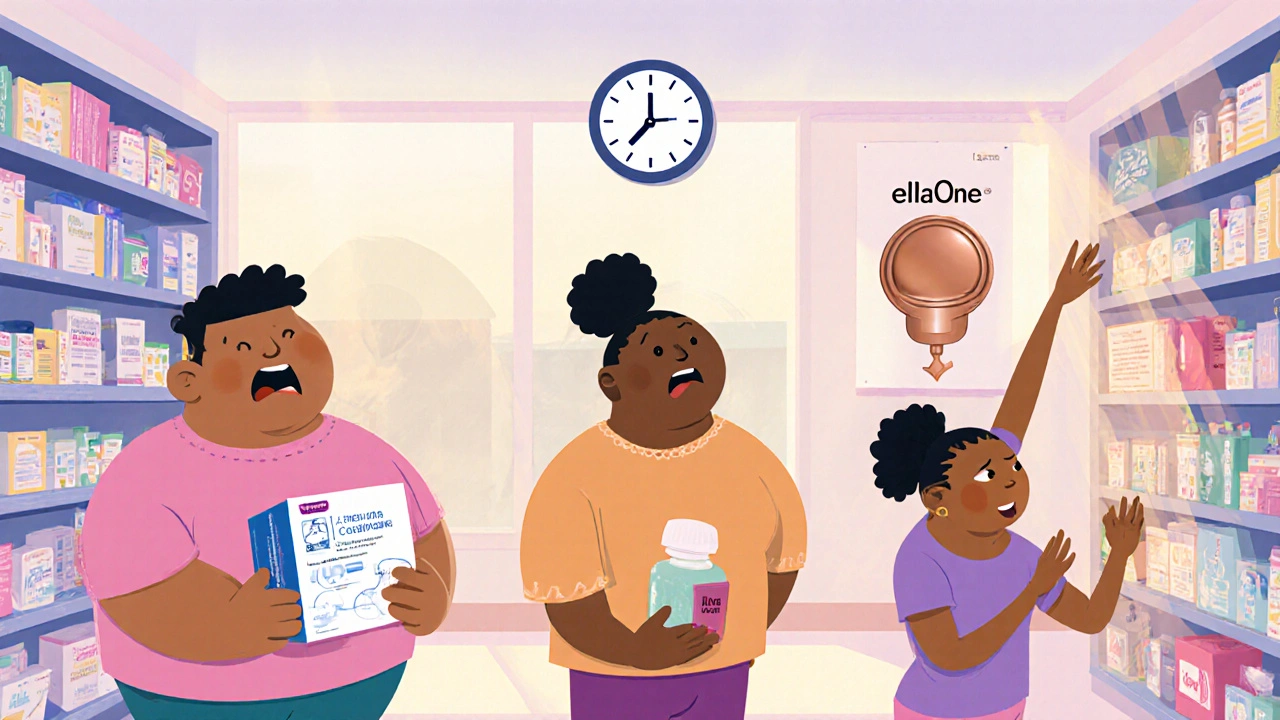Emergency Contraception: What Works, When to Use It, and Safe Alternatives
When sex happens without protection—or when a condom breaks—emergency contraception, a method used to prevent pregnancy after unprotected sex or contraceptive failure. Also known as the morning-after pill, it’s not a regular birth control method, but a safety net you can count on if time is short. It works by delaying or stopping ovulation, and it’s most effective when taken as soon as possible, ideally within 24 hours. But even after 72 hours, some forms still offer protection, which is why knowing your options matters.
There are two main types of emergency contraception you can get without a prescription in most places: levonorgestrel, a synthetic hormone found in pills like Plan B One-Step, and ulipristal acetate, a stronger option sold as Ella, which works up to 120 hours after unprotected sex. Levonorgestrel is cheaper and easier to find, but ulipristal acetate is more effective, especially if you’re overweight or if more than 72 hours have passed. Neither causes an abortion—it won’t affect an existing pregnancy. And while they’re safe for most people, they can cause nausea, fatigue, or changes in your next period. If you’re on certain medications like seizure drugs or St. John’s wort, they might not work as well, so talk to a pharmacist if you’re unsure.
Emergency contraception isn’t the only option. An IUD inserted within five days of unprotected sex is actually the most effective form of emergency birth control, with a success rate over 99%. It also doubles as long-term contraception if you want it to. But not everyone can get one right away, which is why pills are so important. You don’t need to be a doctor to know this stuff—pharmacists, clinics, and even online guides can walk you through what to take, when to take it, and what to expect next.
The posts below cover real-world comparisons and practical advice on how emergency contraception fits into your broader health choices. You’ll find clear breakdowns of how these pills stack up against each other, what to do if they don’t work, how they interact with other meds like thyroid drugs or antibiotics, and when to skip them entirely. No fluff. No jargon. Just what you need to know to make a smart, timely decision when it counts.
I-Pill vs Alternatives: What Works Best for Emergency Contraception?
Compare I-Pill (levonorgestrel) with ellaOne and copper IUD for emergency contraception. Learn which option works best based on timing, effectiveness, and long-term needs.

